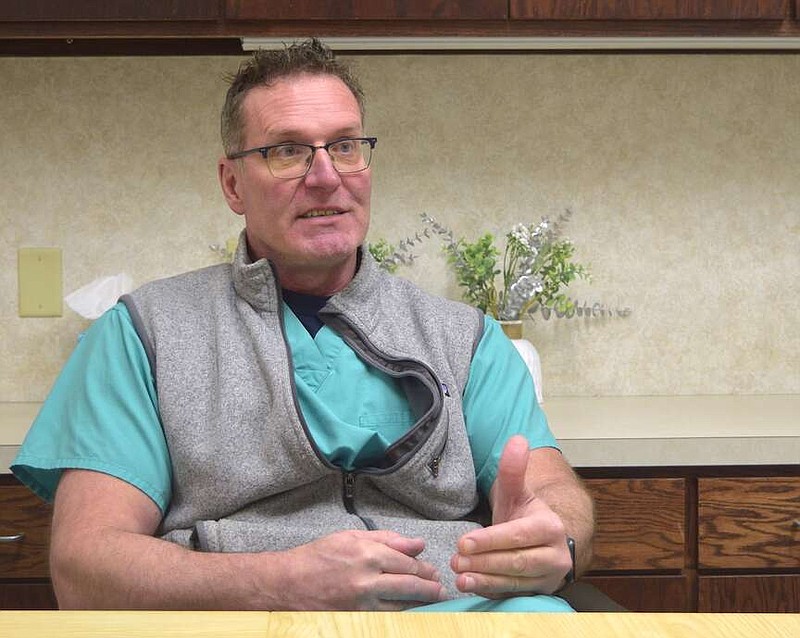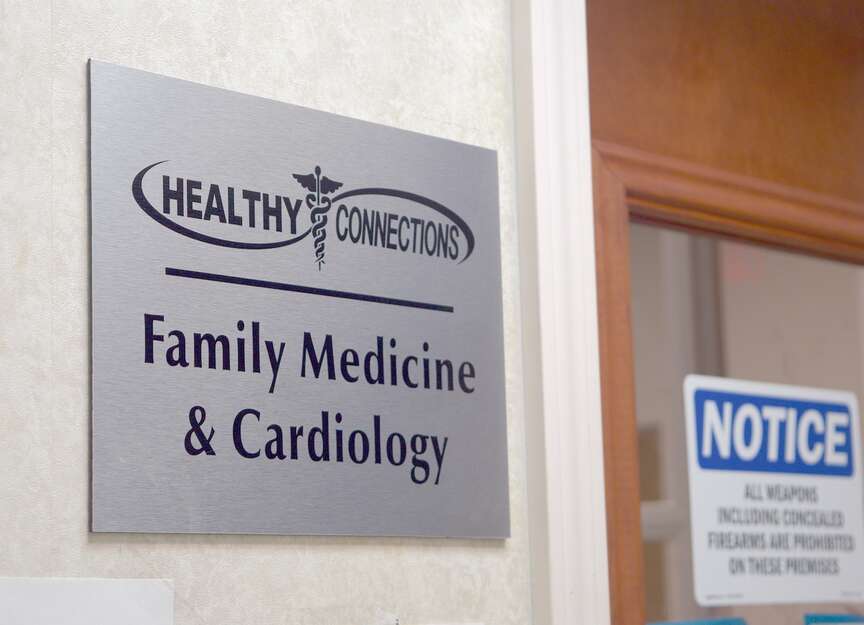January is Cervical Health Awareness Month, and this year's theme is "Learn. Prevent. Screen."
Dr. Pittman D. Moore, OB/GYN with Healthy Connections Inc., said there should be no barriers to getting screened for the disease.
"There should not be significant barriers in the United States," Moore said. "All patients regardless of ability to pay have access. ... Young people have to take the initiative to get in to see their doctor and ... to know ... they're simply helping themselves."
Video not playing? Click here https://www.youtube.com/embed/xdKOlWhjhxo
In 2023, the Arkansas Department of Health estimated 160 women in the state developed cervical cancer, with 60 deaths reported. A health department news release said Arkansas currently ranks as fifth-lowest for Pap tests and eighth-lowest for HPV vaccination among girls 13-17 years old.
Dr. Bala Simon, deputy chief medical officer for the department, released a statement through a spokesperson that estimates the rate of cervical cancer to be 8.7 per 100,000 persons in Garland County.
"We're specifically talking about cervical cancer," Moore said. "There's probably 12,000 cases of cervical cancer ... every year in the United States, approximately 4,000 deaths."
The World Health Organization says "cervical cancer is one of the most preventable and treatable forms of cancer."
Cancer-causing, or "oncogenic," human papillomavirus types are a risk factor for cervical pathology. Public health initiatives focus partly on vaccine-based HPV prevention.
Estimates for lifetime incidence of sexually transmitted HPV are 75%-85% of the reproductive-age population. A 2014 study found the lifetime probability of contracting HPV for those with opposite-sex partners to be 84.6% for women and 91.3% for men. HPV is common. However, many patients do not go on to develop symptoms.
Moore said there are "high-grade strains and low-grade strains. Low-grade strains are, most likely, never going to progress to cervical cancer. ... The two most common strains of HPV in the United States that cause cervical cancer are HPV 16 and 18."
"The current vaccine is protective against nine different strains of human papillomavirus," he said.
Three vaccines have been developed to target distinct HPV types: Gardasil 9, Gardasil, and Cervarix. All three work to prevent HPV variants 16 and 18. The CDC reports that vaccination has resulted in an 88% decrease in HPV infections among adolescent girls with an 81% reduction for young adult women.
"Recommendations are for both young girls and young males, as well, starting at the age of around 11-12," Moore said. "It's a two-shot regimen. If someone has started on it later -- from age 15 up until the age of 26 -- then, those patients get three shots" over the course of a year.
Although the vaccine is not generally recommended for ages 27-45, the CDC says patients who are not already vaccinated may decide to get the HPV vaccine after speaking with their doctor.
HPV vaccination "provides less benefit, because more people in this age range have already been exposed to HPV," the CDC says.
"This is a sexually transmitted disease. So, just like we recommend in every situation, use protection. ... The other things patients can do to decrease their risk of cervical cancer is avoid ... sexual encounters with different partners," Moore said.
"Cigarette smoking is a risk factor as it pertains to cervical cancer. The carcinogenic effect of cigarettes has an impact on cellular integrity at the level of the cervix."
Cervical cancer screenings consist of Pap tests to detect "precancerous changes in cervical cells," the "Pinkbook" CDC publication says. These tests can be combined with screening for early detection of oncogenic HPV types.
"People say, 'If I've had the vaccine, do I still need to get the Pap smear?'--and the answer is yes," Moore said.
Pap smears "are generally done every three years, between 21 and 29. After the age of 30 up to 65, we do every five years ... as well as a test for HPV. That's what we call 'co-testing.'" If the Pap smear comes back abnormal, "then you have further testing at that point," Moore said.
"There's this long stage of progression. Most people estimate ... it takes roughly 10 years from that initial infection to the point of cervical cancer. As you can see, there's a lot of time to catch that in between. And that can be treated, and cervical cancer can be prevented."
Early detection primarily leads to surgical interventions, including excision and lasering.
"We've reduced the number of unnecessary procedures ... whatever the treatment choice," Moore said. "At more advanced stages, surgery becomes a less viable option and patients undergo radiation and/or chemotherapy."
Doctors proceed differently for patients who are pregnant.
"A lot of those patients, you wait until after the pregnancy," he said. "If it is more of a high-grade lesion, then those patients can have a colposcopy and a biopsy. As far as vaccines go, they would need to hold off until after pregnancy."
Because symptoms manifest late, screening is vital for preventing cervical cancer.
"Unfortunately ... symptoms develop very late. If a patient is having symptoms ... and there is a history of abnormal Pap smears, then the chances of them having cancer at that point are pretty high."
Moore advised patients to break through the stigma surrounding sexually transmitted infections and get screened for HPV and cervical abnormalities. Knowing HPV is common can reduce feelings of shame relating to the condition.
"It's estimated that ... 80% of women will be infected with HPV," he said.
"We at Healthy Connections do everything we can to try to relax patients and keep them calm (without) any risk of anxiety or fear, or judgment, honestly."
Healthy Connections Inc. is located at 3604 Central Ave., Suite D. Additionally, the Garland County Health Unit coordinates a program called BreastCare. It provides "cervical cancer screening and diagnostic services."
Services are available to lower-income residents at no cost. People ages 21-64 are eligible to be screened. Their office is located next to the Garland County Library, at 1425 Malvern Ave. To learn about eligibility, call 833-693-2942 or visit:
http://www.ArBreastCare.com

